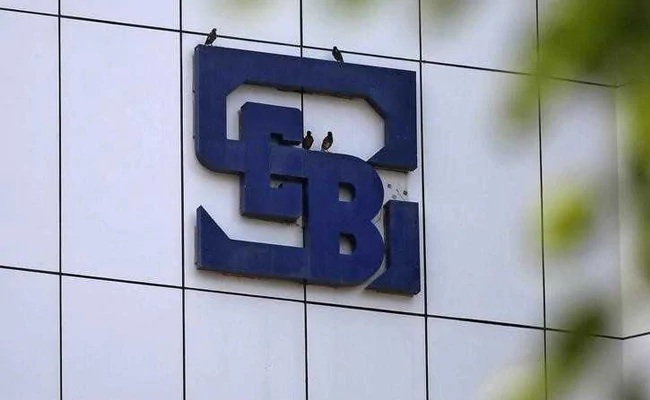Sebi Eases Listing Rules For Start-Ups, Makes Delisting Process Transparent

[ad_1]
Markets regulator Securities and Exchange Board of India (Sebi) on Thursday relaxed listing rules for start-ups, revamped delisting rules, and eased norms for re-classification of a promoter as a public shareholder.
In its meeting, Sebi’s board approved measures for reporting of sustainability issues by companies and taken steps to strengthen corporate governance practices and disclosure requirements by listed firms.
In addition, the board amended norms pertaining to alternative investment funds (AIFs) and made it mandatory for portfolio managers to obtain prior approval of the regulator for change in control, Sebi said in a statement.
To address information asymmetry among shareholders, Sebi decided that listed firms should make available audio and video recordings of analyst and investor meet on their websites as well as stock exchanges within 24 hours or before the next trading day.
Also, written transcripts of such conference calls should be made available on websites of listed companies and respective stock exchanges within five working days after such calls.
It approved several amendments to the Sebi (Listing Obligations and Disclosure Requirements) Regulations, 2015.
Under the amendment, requirement for formulation of dividend distribution policy by the existing top-500 listed companies has been extended to the top-1,000 listed companies on the basis of market capitalisation.
In the case of board meetings held for more than one day, Sebi said financial results must be disclosed by the listed entities within 30 minutes of end of the board meeting for the day on which the financial results are considered.
The requirement to constitute the risk management committee (RMC) has been extended to the top-1,000 listed entities by market capitalisation from the existing top-500 listed entities.
To make the delisting process more transparent and efficient, Sebi said the committee of independent directors will be required to provide their “reasoned recommendations on the proposal for delisting”.
Timelines for completion of various activities forming part of delisting process have been introduced or revised to make the process more efficient, Sebi said.
Promoter or acquirer will be required to disclose their intention to delist the company by making an initial public announcement. Besides, promoter or acquirer will be permitted to specify an indicative price for delisting which should not be less than the floor price.
Further, promoter will be bound to accept the price discovered through reverse book building if the same is equal to the floor price or indicative price. They will be bound to accept.
In addition, role of merchant banker involved in the delisting process has been elaborated. With regard to reclassification of promoter, Sebi rationalised the existing framework pertaining to reclassification of promoter and promoter group entities.
This includes exemption from the requirement of seeking approval of shareholders in cases where the promoter seeking reclassification holds shareholding of less than 1 per cent, subject to the promoter not being in control.
In addition, relaxation has been granted for few procedural requirements related to reclassification such as obtaining request from promoter, approval from the board and shareholders in case of open offer under Sebi Takeover Regulations and scheme of arrangement.
It has also been decided to reduce the time gap between the date of board meeting and shareholders” meeting for consideration of reclassification request, to a minimum of one month and a maximum of three months from the existing requirement of minimum period of three months and maximum six months.
To make the Innovators Growth Platform (IGP) more accessible to companies in view of the evolving start-up ecosystem, Sebi decided relax various norms, including reducing holding period for pre-issue capital and allowing discretionary allotment to eligible investors in order to boost listing of such firms.
Other proposals approved include easing delisting requirements and relaxation in guidelines for migrating to main board. Sebi has decided to reduce the period of holding of 25 per cent of pre-issue capital of the issuer company by eligible investors to one year from the current requirement of two years.
The regulator cleared proposals to provide a definition of ”start-up” as specified by the government.
It also removed the list of restricted activities or sectors from the definition of venture capital undertaking to provide flexibility to venture capital funds registered under Category I Alternative Investment Funds (AIFs) in making investments.
Further, it permitted AIFs, including funds of AIFs, to simultaneously invest in units of other AIFs and directly in the securities of investee companies subject to certain conditions.
Also, Sebi decided a new format for business responsibility and sustainability reporting, covering environmental, social and governance perspectives, which will be applicable to the top-1,000 listed entities by market capitalisation.
The move is expected to bring in greater transparency and enable market participants to identify and assess sustainability-related risks and opportunities.
This new report will be called the Business Responsibility and Sustainability Report (BRSR) and will replace the existing Business Responsibility Report (BRR).
The BRSR will be applicable to the top 1,000 listed entities by market capitalization, for reporting on a voluntary basis for financial year 2021-22 and on a mandatory basis from financial year 2022-23.
Further, Sebi budget for the financial year 2021-22 was approved by its board.
[ad_2]
Source link

